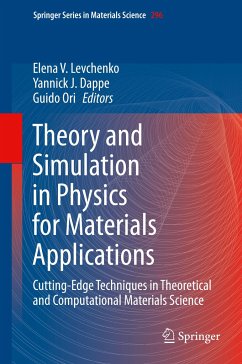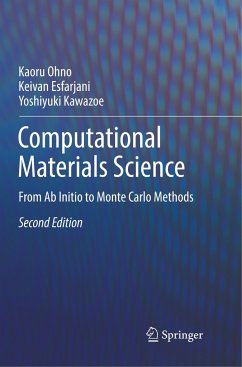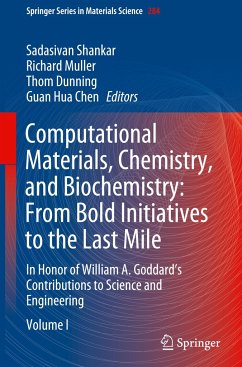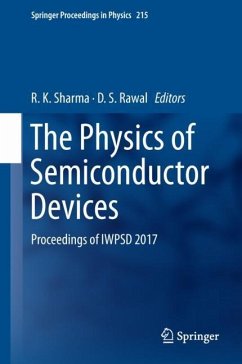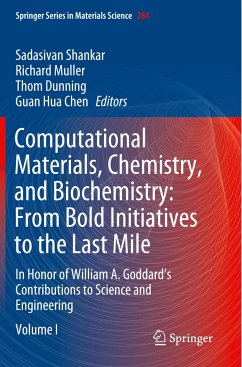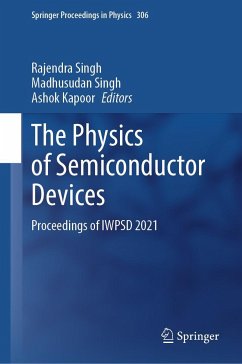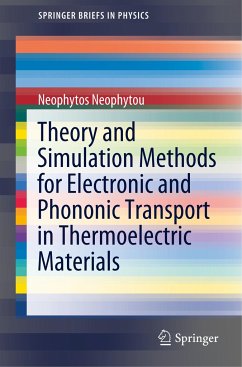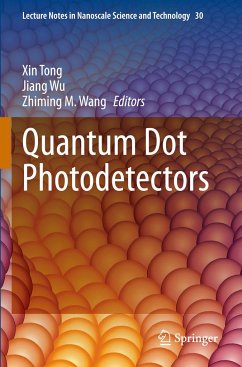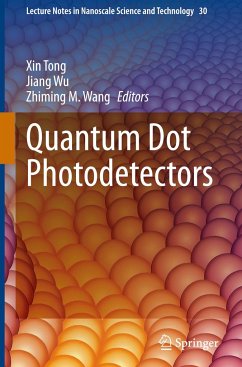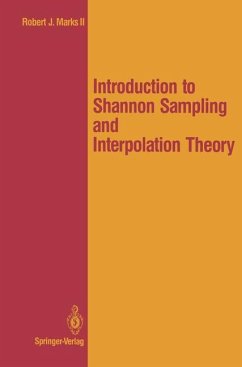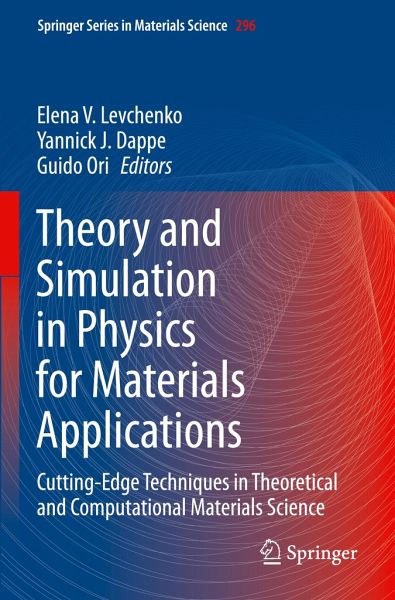
Theory and Simulation in Physics for Materials Applications
Cutting-Edge Techniques in Theoretical and Computational Materials Science
Herausgegeben: Levchenko, Elena V.; Dappe, Yannick J.; Ori, Guido
Versandkostenfrei!
Versandfertig in 6-10 Tagen
113,99 €
inkl. MwSt.

PAYBACK Punkte
57 °P sammeln!
This book provides a unique and comprehensive overview of the latest advances, challenges and accomplishments in the rapidly growing field of theoretical and computational materials science. Today, an increasing number of industrial communities rely more and more on advanced atomic-scale methods to obtain reliable predictions of materials properties, complement qualitative experimental analyses and circumvent experimental difficulties. The book examines some of the latest and most advanced simulation techniques currently available, as well as up-to-date theoretical approaches adopted by a sele...
This book provides a unique and comprehensive overview of the latest advances, challenges and accomplishments in the rapidly growing field of theoretical and computational materials science. Today, an increasing number of industrial communities rely more and more on advanced atomic-scale methods to obtain reliable predictions of materials properties, complement qualitative experimental analyses and circumvent experimental difficulties. The book examines some of the latest and most advanced simulation techniques currently available, as well as up-to-date theoretical approaches adopted by a selected panel of twelve international research teams. It covers a wide range of novel and advanced materials, exploring their structural, elastic, optical, mass and electronic transport properties. The cutting-edge techniques presented appeal to physicists, applied mathematicians and engineers interested in advanced simulation methods in materials science. The book can also be used as additional literature for undergraduate and postgraduate students with majors in physics, chemistry, applied mathematics and engineering.



